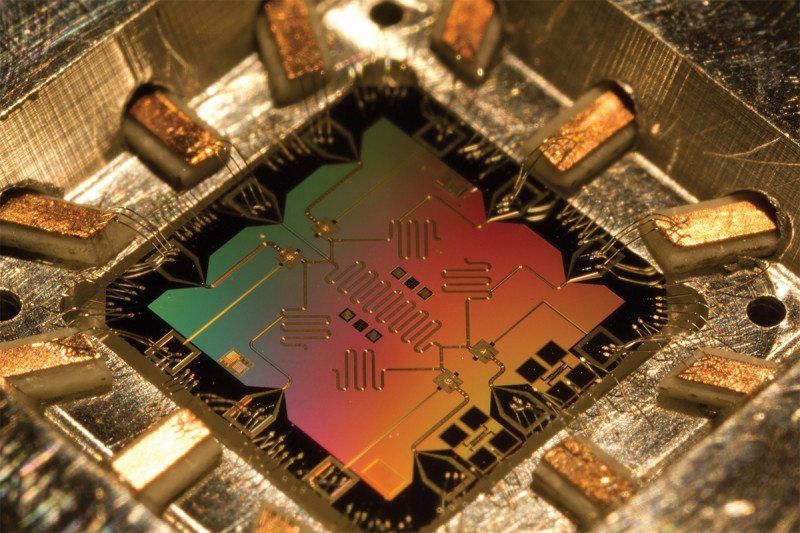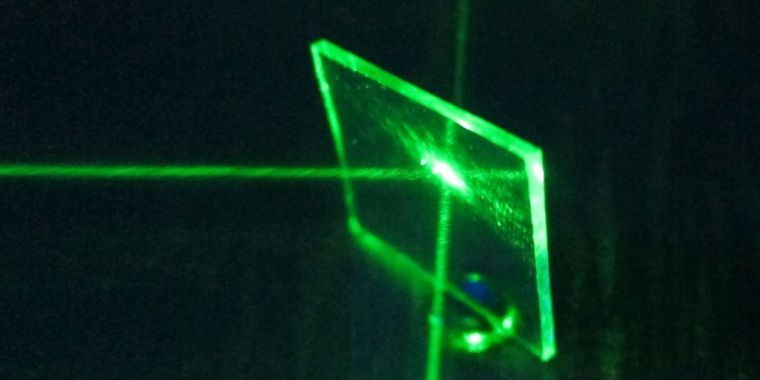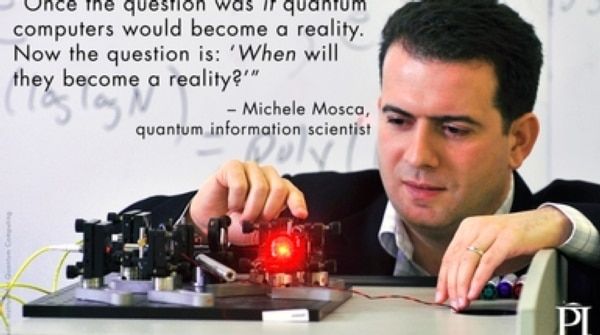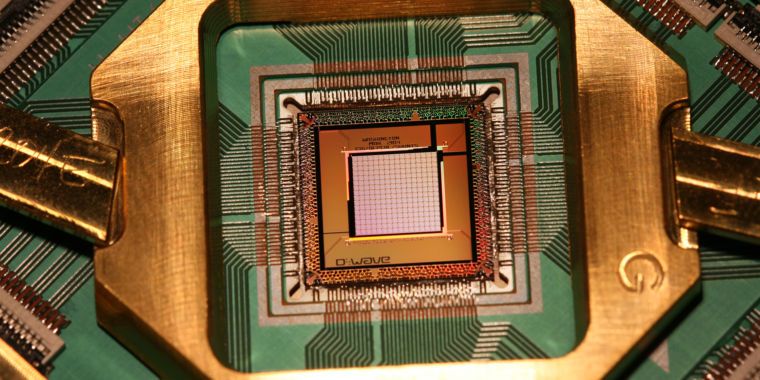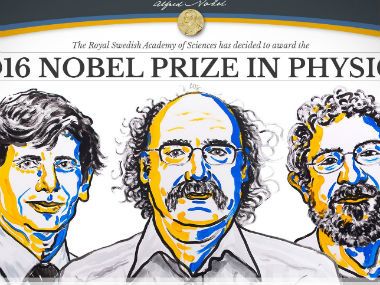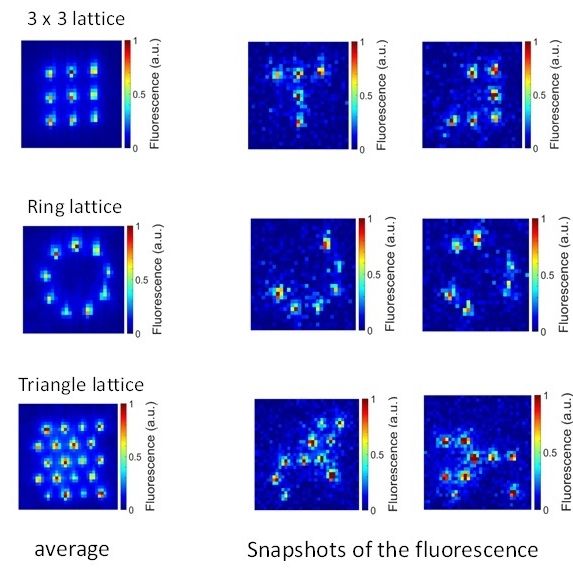Archive for the ‘quantum physics’ category: Page 742
Oct 6, 2016
The quantum clock is ticking on encryption – and your data is under threat
Posted by Karen Hurst in categories: computing, encryption, quantum physics, security
Quantum computers pose a major threat to the security of our data. So what can be done to keep it safe?
Oct 6, 2016
Field of quantum computing is undergoing a rapid shake-up
Posted by Karen Hurst in categories: computing, quantum physics
Oct 6, 2016
A quantum beamsplitter that relies on dust
Posted by Karen Hurst in category: quantum physics
Scientific Method —
A quantum beamsplitter that relies on dust.
Researchers divide photons when they should group together.
Continue reading “A quantum beamsplitter that relies on dust” »
Oct 5, 2016
How Quantum Computing Could Change Cybersecurity Forever [Video]
Posted by Karen Hurst in categories: cybercrime/malcode, government, quantum physics
As I have continued for over a year to repeat that for any company or government entity to not include QC in their 5+ yrs future state roadmap is truly enabling their company or government to be easy pickings for hackers.
Quantum scientist Michele Mosca will discuss security in the coming quantum age during a live Webcast tonight at 7 P.M.
Oct 5, 2016
At the bleeding edge of AI: Quantum grocery picking and transfer learning
Posted by Karen Hurst in categories: business, computing, quantum physics, robotics/AI
Digitising Business —
At the bleeding edge of AI: Quantum grocery picking and transfer learning.
Computer vision, neural nets, and deep learning are hot topics at UK R&D centres.
Continue reading “At the bleeding edge of AI: Quantum grocery picking and transfer learning” »
Oct 5, 2016
Fault-Tolerant Quantum Technologies ’16
Posted by Karen Hurst in category: quantum physics
After some weeks’ hiatus, Quanta for Breakfast is back! Today I want to give my thoughts on the Fault-Tolerant Quantum Technologies Workshop that I attended this summer in Benasque, Spain. It was my first time visiting the beautiful town and both the location and the workshop definitely lived up to my expectations.
Oct 5, 2016
Nobel Physics Prize winners: All you need to know about mugs, donuts and quantum computing
Posted by Karen Hurst in categories: computing, mathematics, quantum physics
Stockholm: The Nobel Physics prize was the second of the awards to be given away, on Tuesday, to a Birtish trio — scientists David Thouless, Duncan Haldane and Michael Kosterlitz for revealing the secrets of exotic matter.
Thouless, 82, is professor emeritus at the University of Washington in Seattle. Haldane, 65, is a professor at Princeton University, and Kosterlitz, born in 1942, teaches at Brown University in Providence, Rhode Island. The laureates will share the eight million Swedish kronor (around $931,000 or 834,000 euros) prize sum. Thouless won one-half of the prize, while Haldane and Hosterlitz share the other half.
“This year’s laureates opened the door on an unknown world where matter can assume strange states. They have used advanced mathematical methods to study unusual phases, or states, of matter, such as superconductors, superfluids or thin magnetic films. Thanks to their pioneering work, the hunt is now on for new and exotic phases of matter,” said the Nobel jury.
Oct 5, 2016
Quantum computing: Trapping single atoms in a uniform fashion
Posted by Karen Hurst in categories: computing, particle physics, quantum physics
Single neutral atoms trapped individually in optical microtraps are incredibly useful tools for studying quantum physics, as the atoms then exist in complete isolation from the environment. Arrays of optical microtraps containing single atoms could enable quantum logic devices, quantum information processing, and quantum simulation.
While single atom trapping has already been achieved, there are still many challenges to overcome. One such challenge is making sure each trap holds no more than one atom at a time, and also keeping it there so it won’t escape. This requires uniform optical microtraps, which have yet been fully realized.
Now, Ken’ichi Nakagawa and co‐workers at the University of Electro‐Communications, Tokyo, Japan, together with scientists across Japan and China, have successfully demonstrated an optimization method for ensuring the creation of uniform holographic microtrap arrays to capture single rubidium (87Rb) atoms.
Continue reading “Quantum computing: Trapping single atoms in a uniform fashion” »
Oct 5, 2016
Watch a Quantum Computing Expert Describe How the World’s About to Change
Posted by Shane Hinshaw in categories: computing, quantum physics, robotics/AI
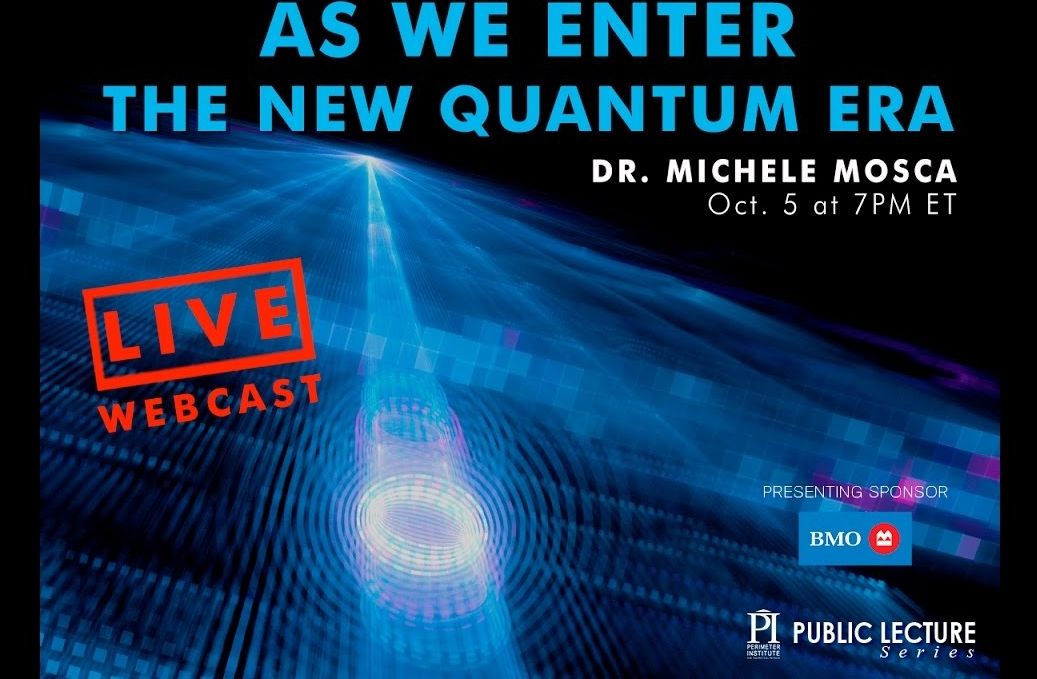
https://youtube.com/watch?v=2q4z6HnB-Tg
This type of computer not really 4 personal use. Because it calculates in every possible way its task in a fraction of second. I belive that this type of computer is built to run ai. Or to run recognition software just to give example. But just imagine the possibilities.
Quantum physics, with its descriptions of bizarre properties like entanglement and superposition, can sound like a science fiction fever dream. Yet this branch of physics, no matter how counterintuitive it seems sometimes, describes the universe all around us: As physicists have told often told me, we live in a quantum world. Soon, this will be better reflected in our technology, and everything it can do.
Continue reading “Watch a Quantum Computing Expert Describe How the World’s About to Change” »


